Healthy eating tricks to steal from the mind diet
This easy eating plan helped me drop pounds, lowered my blood pressure, and changed how I think about food.
Updated on October 12, 2025
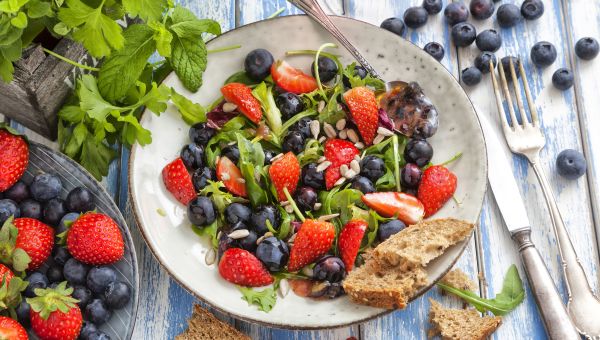
Living the hectic, carb and caffeine-fueled life of a full-time employee and graduate student was taking a definite toll on my health—and one area that could use a change was my diet.
To prioritize my health, I recently decided to adopt a plant-based eating approach for a month. Specifically, my goals were:
- Eat no beef, pork, or preserved meats; poultry and fish on special occasions only.
- Eat home-cooked meals every day for 30 days.
The simple approach of eating veggie-based meals at home meant I’d automatically have:
- Less salt and preservatives in my diet
- More nutritional diversity
- Less saturated and trans fats
- A balanced bank account, since eating out is pricey
With little-to-no time for complicated recipes or cleanups, I had to teach myself every possible shortcut and hack to make my plan work. And despite my culinary incompetence, I somehow managed to pull off this challenge, while losing around 7 pounds overall. Meal prep was surprisingly quick and my fridge was always stocked with healthy options.
Here are the simple tips that helped me complete this challenge.
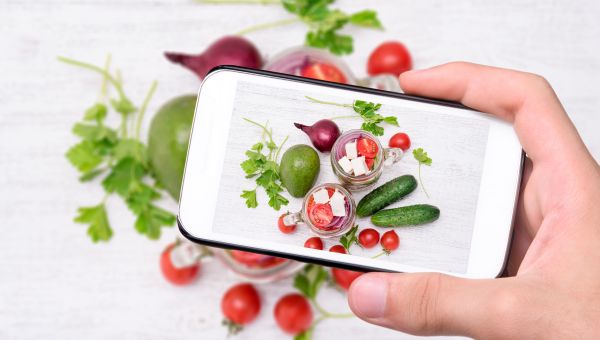
Keep a visual food journal
A food journal can increase your weight loss success, but it’s not always possible to stop and write down what you’re eating.
I wasn’t about to press pause on my meals for the sake of bookkeeping. I started snapping pics with my phone instead. Turns out, this simple step really does boost accountability.
- If I couldn’t remember how many servings I’d had of one particular food, I could swipe through my photos to check.
- My coworkers were also dieting, so we’d often share recipes and pics—I didn’t want any random fried foods in my photo stream.
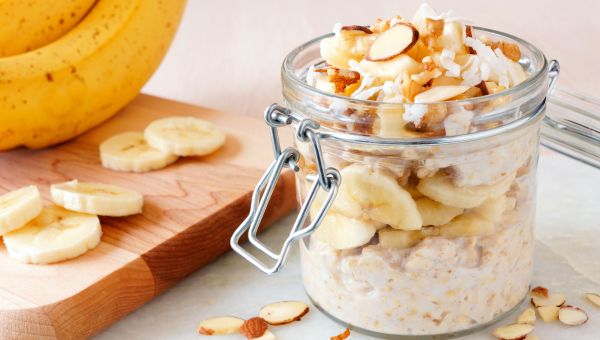
Start your days off strong
This diet got me into the habit of eating filling, heart-healthy oatmeal each morning. But I’m not talking about the sugary, artificial packets with ingredients you can’t pronounce. I mean hearty, goopy, 100% real oatmeal.
Sadly, steel cut oats can take a while to cook. Some ways to get around that are making overnight oats or throwing oats and water in a rice cooker every few days to make large batches at a time.
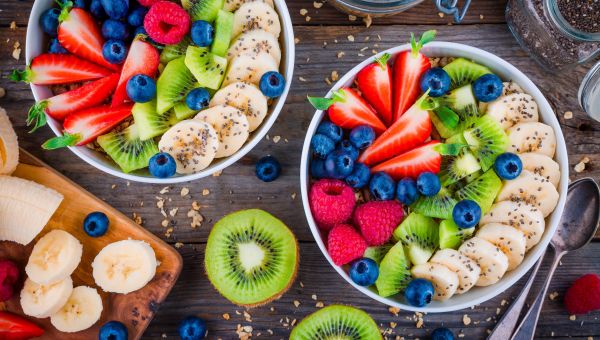
Decorate your breakfast
A daily serving of oatmeal might sound like it would get old, but I never experienced breakfast boredom. I decorated my bowls with these delicious toppings:
- Fresh fruit like peach, mango, or berries; berries are the only fruit specifically included on the MIND Diet because of their brain-boosting properties
- Vanilla or almond extract
- Almond milk—just check the nutrition facts; some brands contain too much sodium and sugar
- Almond slices or walnuts
- Seeds like chia and flax
- Ground ginger, cinnamon, nutmeg, or cloves
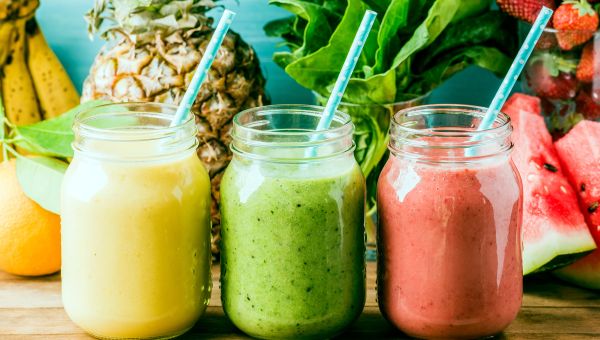
Get a single-serving blender—you’ll thank me later
On especially busy mornings, I’d throw some ingredients in my single-serving blender and take one of these satisfying smoothies to go:
- Peaches ‘n Cream: Frozen peaches, plain Greek yogurt, almond milk, almond extract, cinnamon, and ice
- Raspberry Refresher: Frozen raspberries, banana, almond milk, vanilla extract, and ice
- Elvis’ Favorite (and mine): Peanut butter protein powder (get the taste and protein of peanut butter without the calories and fat), banana, sugar-free dark chocolate, nonfat milk, and ice
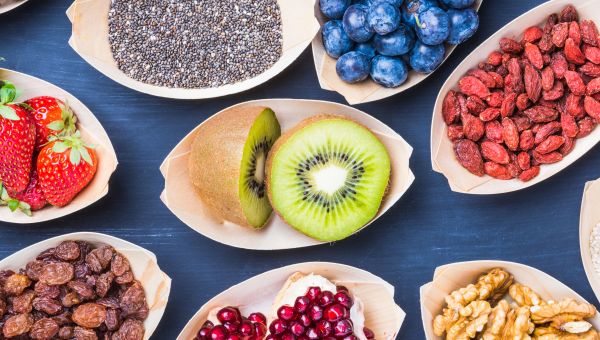
Try these 6 fruit-nut combos
Fruit is encouraged on the MIND Diet and nuts are good for both your heart and brain. Here are my best nutty combos:
- Pistachios and a pear
- Cashews, a square of sugar-free dark chocolate, and orange slices
- Walnuts with plain Greek yogurt and chopped figs
- Almonds and a banana
- Chia seeds sprinkled over peach slices
- Watermelon, feta, basil, and flax seeds
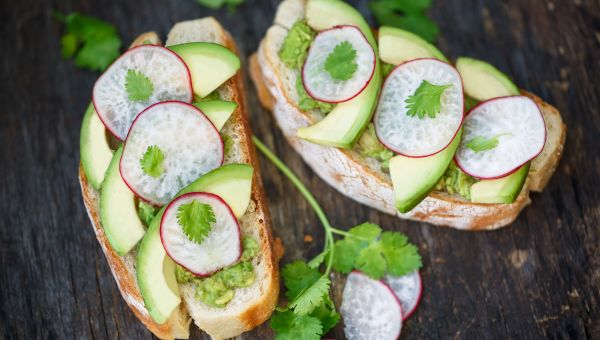
Not feeling nutty? Eat these healthy, tasty snacks
Snack time can be marvelous on the MIND Diet. Just remember that some of these foods, like cheese, should be eaten in moderation.
- “Cheesecake in a bowl,” or one serving of ricotta cheese and fresh berries with half a graham cracker crumbled on top
- Avocado smashed on spelt toast with onions and red pepper flakes
- Tuna salad—make it with olive oil, olives, and chopped veggies instead of mayonnaise
- Spelt bread with ricotta cheese and sliced figs
- Caprese salad, or fresh tomatoes with sliced mozzarella, fresh basil, and olive oil drizzle
- Shrimp cocktail with lemon or low-sodium horseradish sauce
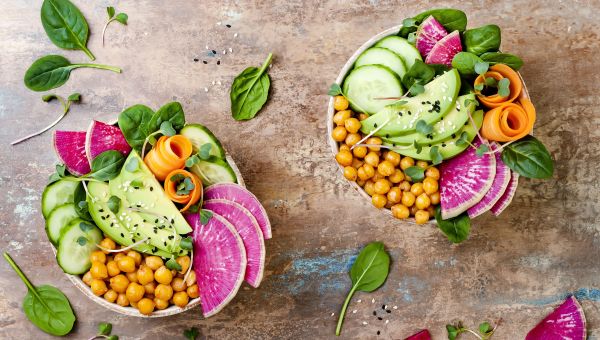
Make salads bulky and always include grains
Mornings can be insane—having the right ingredients on-hand for fast lunchboxes is essential. Here’s how I bulked up my lunch salads with minimal time and effort:
- I kept pre-washed kale, arugula, and romaine in the fridge, and would throw a handful of each into my salad container.
- I used pre-washed veggies like shredded carrots, cabbage, and broccoli slaw as easy toppings.
- I’d include a grain like brown rice or bulgur from the night before.
- I’d top it with lean protein made during Sunday meal prep, like diced chicken, black beans, a veggie burger, or vegan crumbles.

Sip smart at the coffee shop
I don’t drink diet or regular soda. But coffee, tea, and juice are healthy, right?
It depends. I started asking how many syrup pumps came in my order at the coffee shop—the answer often ranged from six to eight, depending on the drink. Many secretly contained my entire daily serving of sugar.
Always ask the barista about the sugar in your drink order. Ask for one pump or two to start out. But work towards tapering off the liquid sugar all together if possible.
Watch out for drinks that come in bottles, too. Many juice, tea, and coffee beverages with healthy-looking labels are loaded with strange ingredients and added sugars.
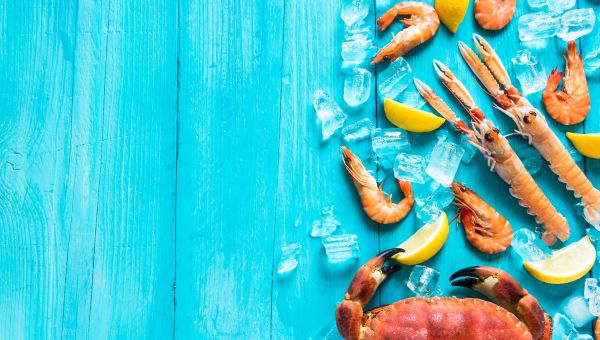
Get sassy about seafood
Aim to eat fish at least once a week. Fatty fish like salmon is especially high in omega-3 fatty acids, which may protect against the buildup of beta-amyloid plaques, brain proteins linked to the development of Alzheimer’s.
But fish is pricey, and a fresh catch can be hard to find. Don’t commit to a filet without asking:
- When was it shipped?
- Was it shipped fresh or frozen?
- How long has it been on display?
- What does 1 pound of that fish look like? Will you get one filet or three for the price?
If you get home and it smells suspicious, bring it back! Don’t eat questionable seafood, and don’t just assume that cost. Pro tip: Buy whenever you see a sale, even if you don’t plan on eating fish that night. Freeze it so you always have affordable, lean protein on-hand.

Know what your dinner’s cooked in
Restaurants were helpful when I told them about my diet needs. Typically, they’d offer to modify dishes to lower the salt and sugar content.
But one detail they often overlooked was oil. Restaurants sometimes cook healthy foods like green vegetables and fish filets in butter to add flavor. Always ask what the chef uses and request water or olive oil instead. (Limit butter and margarine to 1 daily tablespoon or less.)
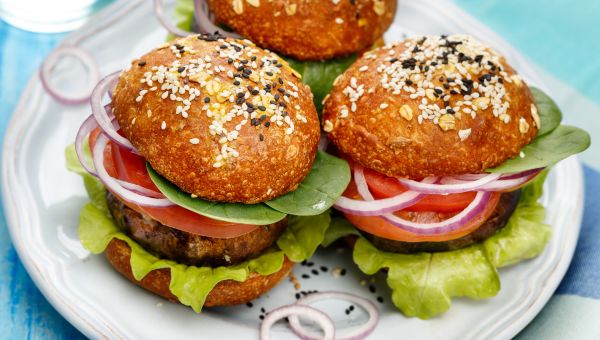
If you miss red meat, try these replacements
Red meat is limited to less than four servings a week on the MIND Diet. If you’re a meat lover, here are some ways to work around the restriction:
- Try sautéed mushrooms and onions instead of bacon as a side for eggs.
- Smoked mozzarella can satisfy bacon cravings, too.
- Choose veggie or black bean burgers over beef patties.
- Use portabella mushrooms to bulk up veggies wraps and sandwiches.
- Include nuts, lentils, or beans in meatless meals.
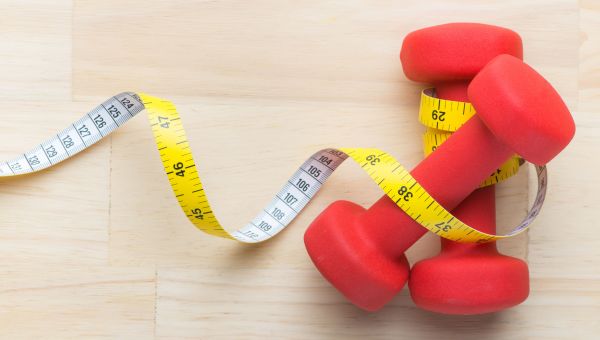
Did I lose any weight?
I shed about 5 pounds in one month. What’s more impressive? My blood pressure improved significantly.
At the start of the challenge, it clocked in at 145/101. By the end of the month, it was 120/85. That’s basically normal—blood pressure should be less than 120/80.
Another perk? I have more energy in the mornings and need far less caffeine to make it through the day. I’m now down to one to two cups of tea, instead of a constant stream of coffee.

Harvard TH Chan School of Public Health. Diet Review: MIND Diet. Reviewed August 2023.
Academy of Nutrition and Dietetics. What is the MIND Diet? December 20, 2023.
Marcason W. What Are the Components to the MIND Diet? J Acad Nutr Diet. 2015 Oct;115(10):1744.
More On


video

article

slideshow


video


video
